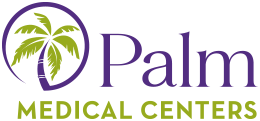Medication Allergy
Introduction
Anatomy
When you are exposed to an allergen, your white blood cells produce antibodies. The antibodies trigger the release of histamine and other chemicals in your blood called mediators. The mediators cause the symptoms of the allergic reaction. An allergic reaction usually will not occur the first time that you take a medication, but it usually takes place the second time the medication is taken. Symptoms of an allergic reaction may be mild in the form of a rash, or life threatening, if vital organs are affected.
Causes
• Painkillers: Codeine, Morphine, nonsteroidal anti-inflammatory drugs (NSAIDS) such as aspirin, ibuprofen, naproxen, or indomethacin
• Penicillin: Including antibiotics that are penicillin products
• Cephalosporins: Including antibiotics that are cephalosporin products
• Sulfonamides: Including sulfa products, such as antibiotics, oral diabetes medications, and water pills (diuretics)
• Antiseizure Medications: Phenytoin (Dilantin), Carbamazepine (Tegretol)
• Insulin preparations
• Local Anesthetics: Novacain, Lidocaine
• General Anesthesia
• Iodine: Used in contrast dyes for X-rays
Symptoms
A potentially life threatening reaction, anaphylaxis, requires immediate emergency medical treatment. Symptoms of anaphylaxis include hives, itching and pale or flushed (reddened) skin. It can be difficult to breathe if the airways narrow and the throat and tongue swell. A wheezing noise may be heard while breathing. The pulse may feel weak and fast. Nausea, vomiting, diarrhea, dizziness, and fainting can also occur.
A severe anaphylaxis reaction can cause a person to develop anaphylactic shock and stop breathing or stop the heart. Symptoms of anaphylactic shock include a sudden drop in blood pressure, difficulty breathing, and a loss of consciousness. Again, immediate emergency medical treatment is needed. Although it is not common, death can result.
Diagnosis
If you are experiencing life threatening symptoms, you should receive emergency medical treatment. If you experience mild allergic symptoms, you should contact the doctor that prescribed the medication. Your doctor will decide what to do based on your symptoms. Typically a review of your symptoms can confirm a medication allergy without the need for tests.
Treatment
Doctors typically will discontinue the use of a medication that causes an allergic reaction. You should follow your doctor’s instructions for discontinuing a medication carefully. Do not discontinue a medication without consulting your doctor. Your doctor will likely have you try another medication that has a similar function. You may be prescribed a medication to stop the allergic reaction and ease symptoms.
Prevention
You should not take medications that you are allergic too. Inform your pharmacy and physicians about your medication allergies. Wear a medical alert necklace or bracelet that states your drug allergy.
Am I at Risk
There are certain risk factors that may make you at risk for a medication allergy, including:
• You are allergic to eggs, shellfish, or soybeans
• Your family members have allergies or asthma
• You take frequent or large doses of a drug
• You have certain medical conditions, such as HIV.
• You use injected medications instead of pills
Complications

Copyright © - iHealthSpot Interactive - www.iHealthSpot.com
This information is intended for educational and informational purposes only. It should not be used in place of an individual consultation or examination or replace the advice of your health care professional and should not be relied upon to determine diagnosis or course of treatment.
The iHealthSpot patient education library was written collaboratively by the iHealthSpot editorial team which includes Senior Medical Authors Dr. Mary Car-Blanchard, OTD/OTR/L and Valerie K. Clark, and the following editorial advisors: Steve Meadows, MD, Ernie F. Soto, DDS, Ronald J. Glatzer, MD, Jonathan Rosenberg, MD, Christopher M. Nolte, MD, David Applebaum, MD, Jonathan M. Tarrash, MD, and Paula Soto, RN/BSN. This content complies with the HONcode standard for trustworthy health information. The library commenced development on September 1, 2005 with the latest update/addition on February 16, 2022. For information on iHealthSpot’s other services including medical website design, visit www.iHealthSpot.com.






